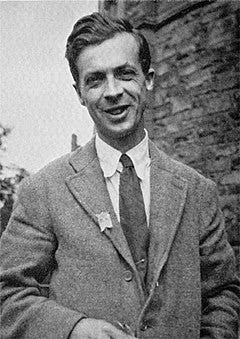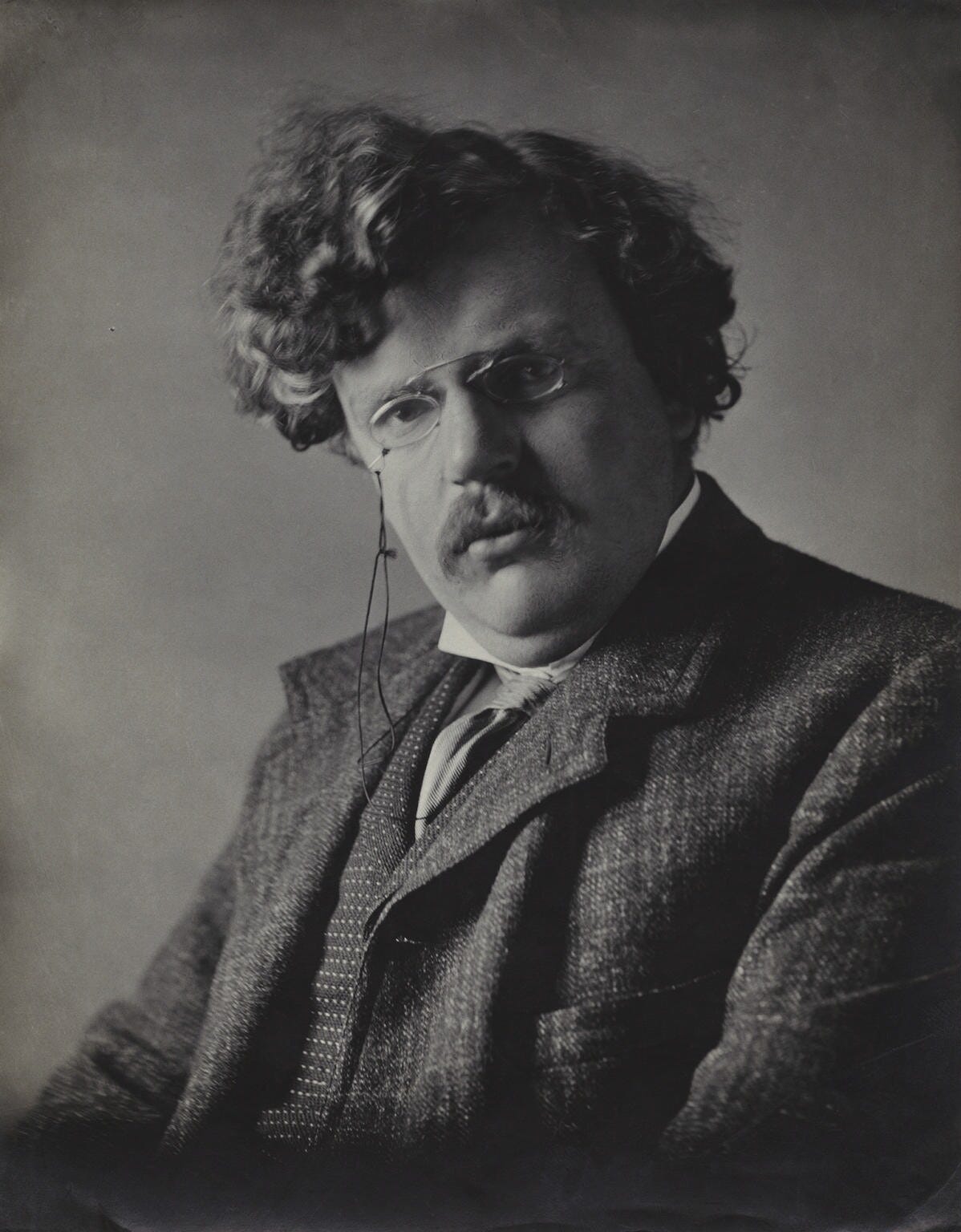Eugenics and the NHS
Shocking evidence of eugenics ideology within the National Health Service
On the 29th September 1960, at Turnberry, the luxury golfing resort on the Clyde coast, Colonel R S Weir, a Lanarkshire County Councillor and president of the Scottish Association of Executive Councils of the National Health Service, addressed the association’s annual meeting. He said:
Much has been said of the deterioration of our blood stock by the preservation of the unfit and undesirables. Their elimination would be a blessing, but education has far to go before people will consent to this.
Later he told the Scotsman newspaper’s health correspondent that he was also in favour of euthanasia for old people and defective infants.
He was, in short, pushing for the NHS to adopt eugenics policies of the bleakest and most severe sort. Elimination of the unfit, of the useless eaters, had fallen out of favour with the intellectual elite after the horrors of the nazi regime had been exposed. Colonel Weir sought a long march through the institutions, principally those of education, until eugenics ideas could once again openly shape public policy. He explained:
I believe it will take about 30 or 40 years before public opinion can be educated to see that such a step would benefit the body politic. Obviously, the most vigorous opposition would come from some sections of the Church.
The Colonel viewed the weak in our society as a burden to be relieved by a Gnadentod, a merciful death:
Let us put aside the question of cost, although this is not trifling. Think on the misery, the ever-present burden in the home blighted by the child moron or the senile defective.
And of course, such killing will only spread happiness in the view of the Colonel:
I told them that there comes a time in life when memory is gone and friends are gone and the will to live is gone," he said. "Then a doctor who helps to speed the soul into eternity, to my mind, does no harm. I see people in mental hospitals and in old people's homes, and there is a stage in their life when they would be happier dead than alive.
In 1957, Colonel Weir had previously presented his ideas at a mental health conference in Peebles, but this caused a storm of protest amongst the delegates and he found little or no support for his views. On this occasion, however, when addressing the senior management of the National Health Service, he found a more receptive audience. What then was the intellectual climate in the 1960s concerning eugenics ideas?
Sir Julian Huxley, founder of UNESCO and its first director-general, and also co-founder of the WWF was a leading intellect in the post-war reframing of eugenics. On June 6th 1962, he delivered the Eugenics Society’s Galton Lecture in London. This he entitled “Eugenics in Evolutionary Perspective.”
In this address he acknowledged, and tried to sideline as a temporary wrong turn, what he called “the reductio ad horrendum of racism” by Nazi Germany. Thus placed in the category of “unfortunate events”, the horrors and abuses of 1930s eugenics were glossed over. Instead, his presentation focussed on what he termed:
…new ideas and attitudes about reproduction and parenthood in particular and human destiny in general. One of those new ideas will be the moral imperative of Eugenics.
The title of his talk showed the foundation that eugenics has in Darwinism. He expanded on this by stating:
Eugenics in Evolutionary Perspective. I chose this title because I am sure that a proper understanding of the evolutionary process and of man's place and role in it is necessary for any adequate or satisfying view of human destiny; and eugenics must obviously play an important part in enabling man to fulfil that destiny. [emphasis added].
The lack of data, reason, and logic in his presentation is hinted at by the use of the word “obviously”. This became even more striking when he discussed the evolutionary processes which he believed gave the basis for his eugenic ideas. Examples from this talk include:
This astonishing process of continuous advance and biological improvement…
Darwin knew nothing - I repeat nothing - about the actual mechanism of biological variation and inheritance.
Neither did the automatic process of natural selection "know" anything about the mechanisms of evolution. Luckily this did not prevent it from achieving a staggering degree of evolutionary transformation, including miracles of adaptation and improvement.
So with this astonishing, knowledge-free, staggering series of miracles as evidential proof, Huxley arrived at the same conclusions that had characterised the 1920s and 1930s War Against the Weak, the control of reproduction by medical professionals and the state. He did, of course, add one or two innovations:
The pioneers of E.I.D. [eugenic insemination by donor), whether its publicists or its practitioners, will undoubtedly suffer all kinds of abusive prejudice-they will be accused of mortal sin, of theological impropriety, of immoral and unnatural practices. But they can take heart from what has happened in the field of birth-control, and can be confident that the rational control of reproduction aimed at the prevention of human suffering and frustration and the promotion of human well-being and fulfilment will in the not too distant future come to be recognized as a moral imperative.
This all has the feel of a religious movement, not a scientific programme. The supporter of eugenics will first be a voice crying in the wilderness, outlining a transforming destiny for mankind. Only later, once the promise of universal well-being starts to be fulfilled will their ideas be embraced by the masses, and from there it will sweep aside all opposition and will form the new moral code for the new age. This is a substitute for Christianity (one of many on offer these days), built upon the mystique of science, if not on actual data or evidence.
It should be recalled that Huxley also coined the term Transhumanism for the idea that mankind can, in the future, surpass the limits placed upon us by biology by the application of the scientific method. This is hinted at in his closing paragraph which also concerns the future:
If, as I firmly believe, man's role is to do the best he can to manage the evolutionary process on this planet and to guide its future course in a desirable direction, fuller realization of genetic possibilities becomes a major motivation for man's efforts, and eugenics is revealed as one of the basic human sciences.
So it is clear that Colonel Weir was not alone. By the 1960s, the eugenics ideas so prevalent a quarter of a century earlier and so discredited by the discoveries at Auschwitz had made a comeback. As Edmund Ramsden stated in a 2006 paper:
Yet in the 1960s, a reformed and revitalized eugenics movement helped reunite social and biological scientists within an interdisciplinary programme of “genetic demography”.
And why had these ideas found favour once again? Ramsden’s view is that leading geneticists and demographers were attracted to this programme because they believed it allowed for eugenic improvement in ways that were consistent with the ideals of welfare democracy. In just over 15 years, a way had been found around the stigma of eugenics. That way was via welfare, democracy and the cause of human well-being. Having thus gained the upper hand in terms of ideas, eugenics had only to await new technological opportunities to exploit.
Returning now to the Scotsman’s record of Colonel Weir’s address in 1960, it is notable that the most vigorous opposition he anticipated was from “some sections of the Church”. This had certainly been the pattern earlier in the 20th Century when opposition had come from Christian churches and notably from author G.K. Chesterton, while support for eugenics had come from more establishment voices in Christendom such as the Dean of St Paul’s Cathedral and the Professor of Divinity at Cambridge University.
Chesterton led the charge with a powerful and witty polemic entitled “Eugenics and Other Evils” published in 1922. A few quotes from this will illustrate the strength of the argument mustered against the eugenic ideas when they were young:
“Most Eugenists are Euphemists. I mean merely that short words startle them, while long words soothe them. And they are utterly incapable of translating the one into the other, however obviously they mean the same thing. Say to them "The persuasive and even coercive powers of the citizen should enable him to make sure that the burden of longevity in the previous generation does not become disproportionate and intolerable, especially to the females"; say this to them and they will sway slightly to and fro like babies sent to sleep in cradles. Say to them "Murder your mother," and they sit up quite suddenly. Yet the two sentences, in cold logic, are exactly the same.
We know all too well, having recently come through the COVID-19 application of state power, that too many of our fellow citizens have seen their mothers lost too soon in the none-too-gentle embrace of palliative care and medical pathways.
Chesterton could have been describing 2020 and 2021 a century before the event when he spoke of the eugenist movement and their state backing as follows:
The thing that really is trying to tyrannise through government is Science. The thing that really does use the secular arm is Science. And the creed that really is levying tithes and capturing schools, the creed that really is enforced by fine and imprisonment, the creed that really is proclaimed not in sermons but in statutes, and spread not by pilgrims but by policemen—that creed is the great but disputed system of thought which began with Evolution and has ended in Eugenics. Materialism is really our established Church; for the Government will really help it to persecute its heretics. Vaccination, in its hundred years of experiment, has been disputed almost as much as baptism in its approximate two thousand. But it seems quite natural to our politicians to enforce vaccination; and it would seem to them madness to enforce baptism.
I am not frightened of the word "persecution" when it is attributed to the churches; nor is it in the least as a term of reproach that I attribute it to the men of science. It is as a term of legal fact. If it means the imposition by the police of a widely disputed theory, incapable of final proof—then our priests are not now persecuting, but our doctors are. The imposition of such dogmas constitutes a State Church—in an older and stronger sense than any that can be applied to any supernatural Church to-day. There are still places where the religious minority is forbidden to assemble or to teach in this way or that; and yet more where it is excluded from this or that public post. But I cannot now recall any place where it is compelled by the criminal law to go through the rite of the official religion. Even the Young Turks did not insist on all Macedonians being circumcised.
Finally, for now, Chesterton summarised the position we occupy in this and many other fields of struggle:
The act of founding the family, I repeat, was an individual adventure outside the frontiers of the State.
In contrast to the sometimes steadfast, sometimes divided response of the church, progressive and secular thinkers were solidly behind eugenics in its jazz and paper age. From George Bernard Shaw:
A part of eugenic politics would finally land us in an extensive use of the lethal chamber. A great many people would have to be put out of existence simply because it wastes other people's time to look after them.
…to the founder and mastermind of the welfare state William Beveridge, who argued that those with “general defects” should be denied the vote and also “civil freedom and fatherhood”, the progressive left embraced eugenics with enthusiasm. This included Sidney and Beatrice Webb, and John Maynard Keynes who was a Director of the Eugenics Society from 1937 until 1944. More on this can be found in Jonathan Freedland’s Guardian article “Eugenics: the Skeleton that Rattles Loudest in the Left’s Closet”.
This seems little-changed today when left-wing politicians create such innovations as the Canadian Medical Assistance in Dying (MAID) and then constantly revisit the rules to move further and further by incremental steps. Remember, as of March 17, 2021, when Bill C-7 received Royal Assent, the law in Canada no longer requires a person’s natural death to be reasonably foreseeable to access medical assistance in dying.
And finally, we come to the question of what is happening now under Britain’s NHS. Since eugenics recovered from its PR disaster during World War II by the 1960s and has been installing itself in the willing host provided by the secular left, who have taken over most institutions of the country, how far has eugenics progressed? We could answer this in many ways as euthanasia (now termed assisted dying), fatal care pathways, lawsuits, and criminal prosecutions preventing parents from seeking treatment for their children outside the NHS when the doctors have determined that their children must die are all in evidence. But let us select just one example of the current ideology in the health service by looking at the case of Down’s Syndrome.
Dominic Lawson wrote about this in the Sunday Times in 2020, he knows the topic well and cares deeply because his daughter, Domenica, was born with Down’s. He titled the piece “The Inconvenient Truth: we practice eugenics”.
In this, he describes the experience of Emma Mellor:
We must have been offered about 15 terminations ... at 38 weeks they made it really, really, really clear that if I changed my mind on the morning of the induction, to let them know, because it wasn’t too late until the baby had started travelling down the birth canal — I could still terminate.
And Nicola Sparrow:
She sat us down and told us all the negative things about having a child with DS, and she said: ‘You’re only 28. You’re both so young — you should terminate and start again.
And of Dominic himself:
When I revealed that we had not had “the tests”, the nation’s most popular ex-nurse, Claire Rayner, wrote an article for a national newspaper in which she said: “The Lawsons will not be paying the full price of their choice” and that “society” would have to bear the “misery” of Domenica’s life. There could not have been a clearer expression of the eugenic argument: Rayner, in her clumsy way, had merely blurted out publicly what was and is the prevailing attitude in the NHS.
What can I say now about Domenica? That although she will never be able to live a completely independent life — which is a challenge and worry — she is thoughtful, kind, highly articulate, hilariously funny (especially as a mimic) and, above all, filled with a joie de vivre that lifts the spirits of all those who meet her.
So much for Rayner’s forecast of “misery” for my daughter, or indeed the interminably repeated fallacy that people “suffer from” Down’s syndrome — an expression designed to reassure people that termination is the “caring” option. And how hypocritical it is for a society that claims to have rejected eugenics not only to promote it within the NHS, but to do so through fear and ignorance. Above all, it does not understand love.
In conclusion, the speech by Colonel R S Weir to the annual meeting of the Scottish Association of Executive Councils of the National Health Service, showed the resurgence of eugenic ideas and their acceptance at the highest levels of the NHS. In the sixty years since, there has been no organised fightback against these views, largely because there has been no open admission of the policy agenda at work. Rather it is by stealth and using the cover of legal and medical innovations such as abortion and new drug therapies that the eugenics programme has been deployed.
Once again, it is a war against the weak. Once again we must marshall the forces of right-thinking and well-doing to protect the infants, those in the womb, the elderly, and those whose lives are deemed to constitute only suffering but who are never asked for their own opinion on the matter. We can be inspired by the lives they lead when they escape the eugenics of the NHS, we can fight for them and we can win for the silence and stealth of the modern eugenics movement shows that they cannot proclaim their objectives publicly for the people will not tolerate it. And lastly, we can remember the words of G.K. Chesterton:
“Evil always wins through the strength of its splendid dupes; and there has in all ages been a disastrous alliance between abnormal innocence and abnormal sin.”
And we can put away foolish innocence, take up the fight against sinful ideas, and say “NO!”.








Does it not seem unnatural and fiendishly wicked that another human would deem an individual or group of people no longer worthy of life, no longer able to contribute to society and now ready for the chop before their time?
What actually brings a person - a human being - to think like this?
Where is the empathy, the compassion, the wonder and the love of life in these individuals?
Perhaps they are soulless entities trapped in a dark mind-set, hollowed out and filled to the brim with ego and self-importance.
I don't like these "entities", I don't need them in my life and, indeed, perhaps the world would be a better place without them? But, the difference is, it's not for me to permanently remove them, nor is it for me to wish their demise before their time. We're all experiencing this journey together whether we agree with each other or not.
Great start to your substack David.